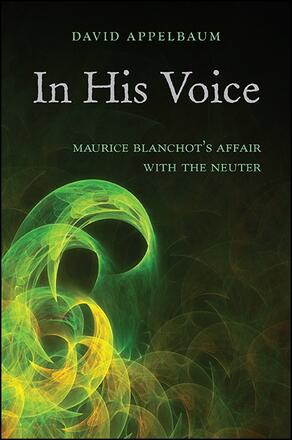
In His Voice
Maurice Blanchot's Affair with the Neuter
Alternative formats available from:
A creative study of Maurice Blanchot’s theory of literary voice.
Description
In His Voice considers the idea of the neuter in Maurice Blanchot's work, and seeks to work out through an exercise of literary impersonation, or ventriloquism, how and why Blanchot relied on this form. Neither active nor passive, the neuter expresses a kind of third voice beyond the command of the author, one that speaks paradoxically of what lies outside of speaking but nonetheless exerts an irrepressible influence on thought. The neuter is exilic, messianic, and fragmentary. Since it cannot be directly accounted for, Blanchot uses a number of indirect approaches—notably, myth—to announce the key elements of his view. Orpheus, Odysseus, and principally Narcissus figure his conception and elaborate the operation of giving voice. Through a distillation of Blanchot's narrative and critical texts—focusing on the late works, The Step Not Beyond, and The Writing of the Disaster—and through an emphasis on performance, In His Voice enacts the event of writing in search of how author's inscriptive reality appears in the world.
David Appelbaum is Professor Emeritus of Philosophy at the State University of New York at New Paltz. He is the author of several books, including A Propos, Levinas; Jacques Derrida's Ghost: A Conjuration; and The Delay of the Heart, all published by SUNY Press.
Reviews
"The book's strength is that it is a sort of extended prose poem on Blanchot, not unlike (in spirit) Sartre'sSaint Genet. It's original, intriguing, and lyrical. The emphasis on the role of Narcissus, especially in The Writing of the Disaster, is important. " — Kevin Hart, University of Virginia